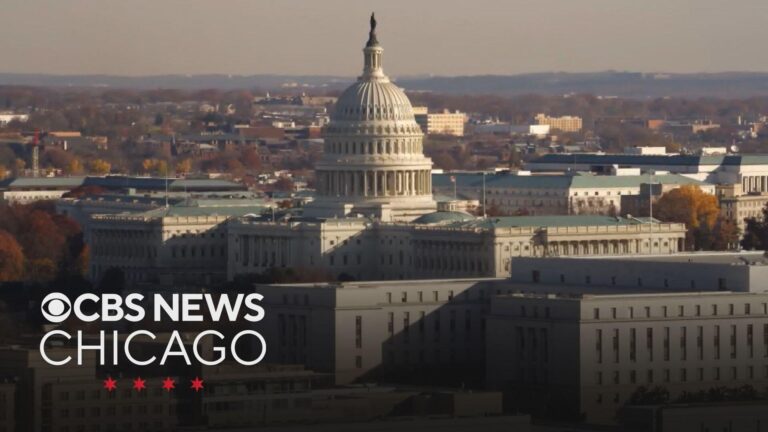Chicago’s Federal Workforce Braces for Disruptions Amid Government Shutdown Threat
As the threat of a federal government shutdown intensifies, federal employees throughout Chicago are bracing for significant operational interruptions that could affect a wide range of public services.Budgetary deadlocks in Washington have prompted agencies to prepare for furloughs and restricted access to federal offices, creating uncertainty for both workers and the public. Essential functions such as visa issuance and public health surveillance are expected to face delays, with agencies issuing guidance to manage reduced staffing and maintain dialog during this transitional period.
Anticipated consequences in Chicago include:
- Postponement of federal appointments and case processing
- Limited support for federally funded social welfare programs
- Increased instability for contractors dependent on government projects
| Agency | Expected Disruption | Current Status |
|---|---|---|
| Transportation Security Administration (TSA) | Staff shortages at airports | Developing contingency strategies |
| Department of Health and Human Services (HHS) | Delays in health inspections and monitoring | On heightened alert |
| Department of State | Backlogs in visa processing | Closely tracking developments |
Operational Delays Expected at Chicago Airports Amid Shutdown Concerns
Chicago’s busiest airports are preparing for operational challenges as a federal shutdown threatens to disrupt critical services. Functions such as security screening, air traffic management, and customs inspections rely heavily on federal personnel who may face furloughs or limited work hours. Airport officials and city leaders warn that these interruptions could cause longer wait times, flight delays, and potential safety issues during peak travel periods.
While emergency plans include reallocating state resources and enhancing coordination with local agencies,these efforts may not fully offset the reduction in federal workforce capacity. The table below highlights key airport operations at risk and their possible repercussions:
| Airport Operation | Likely Impact |
|---|---|
| Security Screening (TSA) | Increased wait times and passenger congestion |
| Air Traffic Control | Flight delays, cancellations, and rerouting |
| Customs and Border Protection | Longer processing times for passengers and cargo |
| Airport Maintenance | Decreased upkeep possibly affecting safety standards |
Economic Fallout for Chicago Communities Dependent on Federal Services
The potential government shutdown poses a serious threat to Chicago’s local economy, especially in neighborhoods reliant on federal employment and services. The suspension of paychecks for thousands of federal workers could sharply reduce consumer spending, impacting nearby businesses such as cafes, retail stores, and service providers. This downturn may exacerbate existing financial strains in vulnerable communities.
Moreover, several federally funded assistance programs risk suspension, placing additional pressure on social safety nets. Key areas of concern include:
- Housing aid programs facing delays, affecting low-income families’ stability
- Healthcare initiatives experiencing interruptions due to funding gaps
- Employment support services becoming less accessible to job seekers
The withdrawal of federal resources during a period of increased demand could deepen economic hardships for many Chicago residents.
| Industry | Projected Impact | Duration Estimate |
|---|---|---|
| Retail and Hospitality | Sales decline between 25-40% | Duration of shutdown |
| Public Health Services | Service interruptions and delays | Immediate effect |
| Federal Employee Compensation | Paychecks delayed or withheld | Until resolution of shutdown |
Financial Preparedness Tips for Federal Employees Amid Shutdown Uncertainty
Federal workers facing the prospect of a government shutdown should take proactive measures to protect their financial well-being. Prioritizing essential expenses such as rent, utilities, and food can help extend limited funds during periods of delayed income. Creating a temporary budget that reflects reduced earnings will aid in managing cash flow and avoiding unnecessary expenditures. Additionally, employees are encouraged to seek out emergency financial assistance programs offered by local nonprofits and government agencies designed to support workers during crises.
Recommended actions include:
- Building an emergency savings fund covering at least one month of critical expenses
- Engaging with creditors early to arrange payment deferrals or hardship accommodations
- Utilizing employee assistance programs for financial counseling and mental health support
- Reducing discretionary spending to conserve available resources
| Expense Type | Suggested Action | Estimated Savings |
|---|---|---|
| Housing | Negotiate flexible payment plans with landlords | Potential deferral of up to 10% of monthly rent |
| Utilities | Apply for hardship assistance programs | Avoidance of late fees and service interruptions |
| Groceries | Plan meals carefully and use discounts or coupons | Save approximately 15-20% |
Conclusion: Monitoring the Shutdown’s Impact on Chicago’s Federal Workforce and Services
As Chicago’s federal employees prepare for the potential consequences of a government shutdown, uncertainty remains over the continuity of vital services and economic stability. Key sectors, including airport operations and social programs, face possible interruptions that could affect residents and travelers alike.Stakeholders are advised to stay updated as negotiations progress in Washington. CBS News will continue to provide timely coverage on the shutdown’s developments and its effects on the Chicago metropolitan area.





